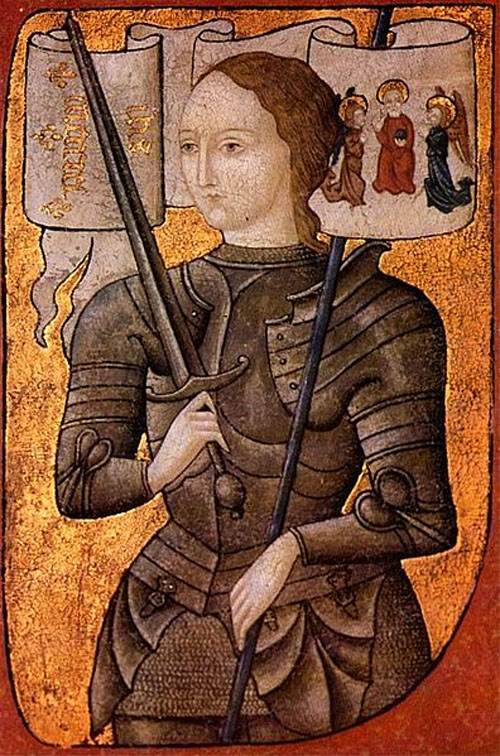Joan of Arc
Review

Joan of Arc, Helen Castor, Faber and Faber,
2014, 328p, £20-00
[ebook £12-99]. ISBN 978-0-571-284627.
The full title of this work is Joan of Arc: A History and this guides the reader into an expectation that this is not just another biography of Joan of Arc.
With the meticulous scholarship that she revealed in She-Wolves, and in the same captivating manner, Helen Castor, presents us with a very compelling analysis. Instead of immediately setting out
to explore the emergence and influence of Joan of Arc, she devotes the first portion of her book to an examination of late 14th and early 15th Century France. She considers the political nature of France, with its physically divided loyalties which extended to the Kings of England and the emergent Dukes of Burgundy as well as the inept and weak French monarchy, and shows how this contributed to the weakness that enabled Joan of Arc to emerge and momentarily
succeed. In the course of this Helen Castor also reveals that Joan was not the first woman with visions and ‘voices' to have approached the French monarchy in those late 14th and early 15th Century decades - Marie Robine and Jeanne-Marie de Maille had both proved that the French court had previously been influenced by women with seemingly mystical powers.
The intricacies of the French situation are carefully revealed, thereby exposing just how complex they were, with weakness in the structure of France and in relationships at the heart of the French monarchy. It was into the midst of political weakness and approaching disaster that Joan of Arc became, at one and
the same time, a saviour to the French monarchy and also
unwittingly a victim of political opportunism, so that she energised the French military to enable Charles VII to be crowned at Reims but then she was, in effect, discarded to her fate at the hands of the Burgundians and the English.
Helen Castor completes this compelling work to explore how the memory of Joan of Arc emerged and has been maintained. There is an inevitability that this episode in French history will be seen in a religious and military context but the story of someone bringing succour to a failing institution and the sheer abandonment that
followed is a political spectre, one with which modern historians and political analysts will also empathise.

